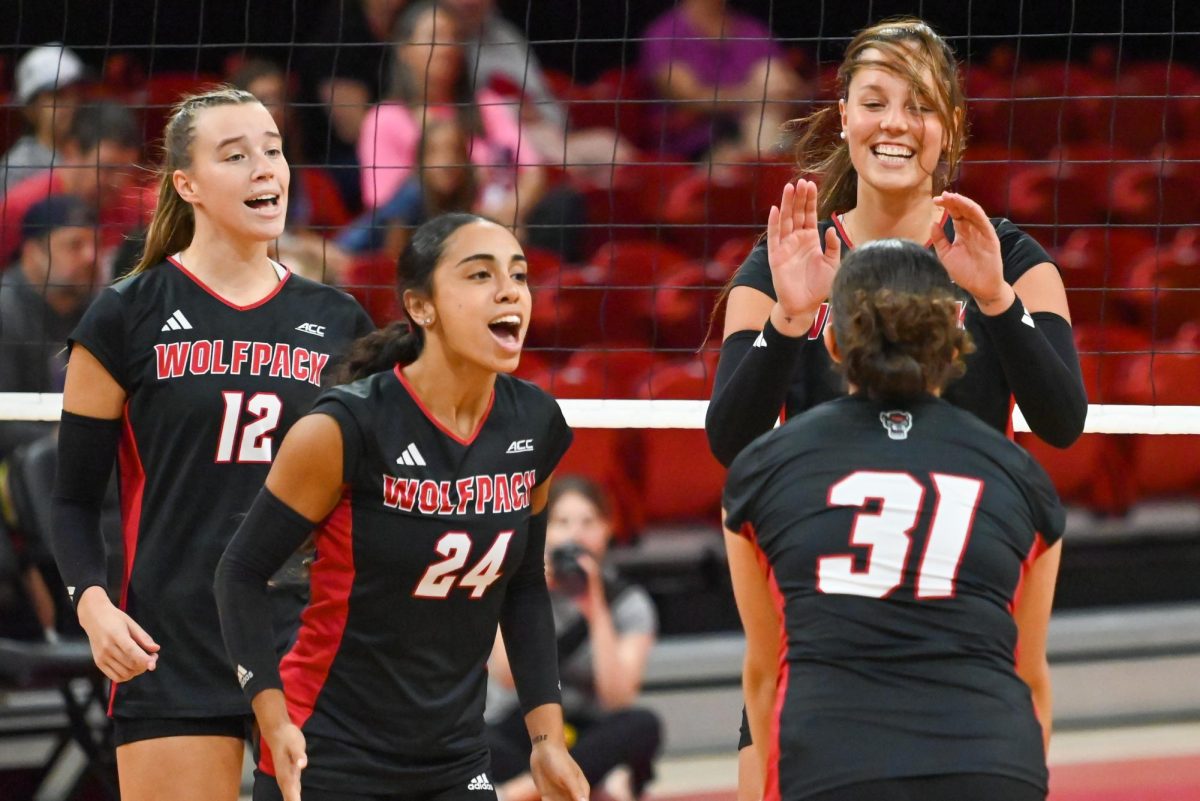The Black Business Student Association
in Poole College, Alpha
Kappa Alpha, and the National
Association for Black Accountants
hosted its Unwritten Rules: Being
Black in Corporate America session
in Witherspoon Wednesday.
The event consisted of an open
panel discussion which covered
some issues facing young African-
American job seekers in the corporate
world. These unwritten rules
covered numerous aspects of seeking
and accepting employment including
interviews, presentation,
rejections and acceptance.
The panel consisted of Nadia Shirin
Moffett, founder and executive
director of The Queen’s Foundation,
Inc., and Miss North Carolina USA
2010, Carlo Laurore, associate director
of gift planning at N.C. State,
alumna Christina Moss, university
program specialist for Cisco Systems,
Denesha Haigler, Sarbanes
Oxley of the Eaton Corporation
and alumnus Otis Ricks, advisory
services senior at EY.
The panelists advised the attendees
about specific pitfalls and barriers
that African-Americans should
consider if they get involved in the
corporate world. Though the forum
was directed to African American
students, their advice crossed racial
barriers. The tips panelists offered
for seeking employment and being students, their advice crossed
racial barriers. The tips panelists
offered for seeking
employment and being successful
in that trade were in
invaluable.
Having worked as employers,
many of the panelists had
been in hiring positions and
offered advice about impressing
interviewers.
Moffett said that “being
intentional and authentic”
in interviews is key to distinguishing
yourself from the
dozens of other candidates.
Ricks said students should
know their resumes well and
be able to extrapolate and
elaborate with “passion”
about key components of
their activities in order to
emphasize their unique characteristics.
The panelists made the
point that because African-
Americans are a minority,
many of the attendees would
face discrimination and experience
unfortunate working
circumstances.
However, Moss told the audience
to ignore racism.
“Just move on” Moss said.
“If they are not willing to
treat you with the appropriate
dignity and respect due
to every human on Earth,
than that employer does not
deserve your employment.”
In an interview, when employers
ask the elusive question
concerning the prospective
employee’s strengths and
weaknesses, Haigler said you
should never feign a strength
as a weakness and to always
be honest.
Laurore said students
should make an effort to
learn mostly about themselves
compared to studying
the company.
“Know 90 percent of yourself,
and 10 percent of the
company,” Laurore said.
The event took a lighter
tone when discussing hair
issues, and general attire at
interviews. Moss said make
sure that hair should not
aggressive nor distracting,
and make sure to look polished
for your interviews.
Moffett stressed a point in
regard to appearance, and
how, unfortunately, the
world still judges employees
by their physical appearance.
In the interviews
there is no need to set up
extra barriers by the manner
in which we dress, but
rather dress appropriately
for the appropriate business
audience, Moffett said.
The panelists discussed at
length how to utilize your
potential to land a job in
the corporate world of the
United States.
Laurore echoed Moss’s
sentiment and said that by
having employers act in an
inappropriate manner, they
actually do candidates a favor
by saving them future
discomfort of working for
that person.




